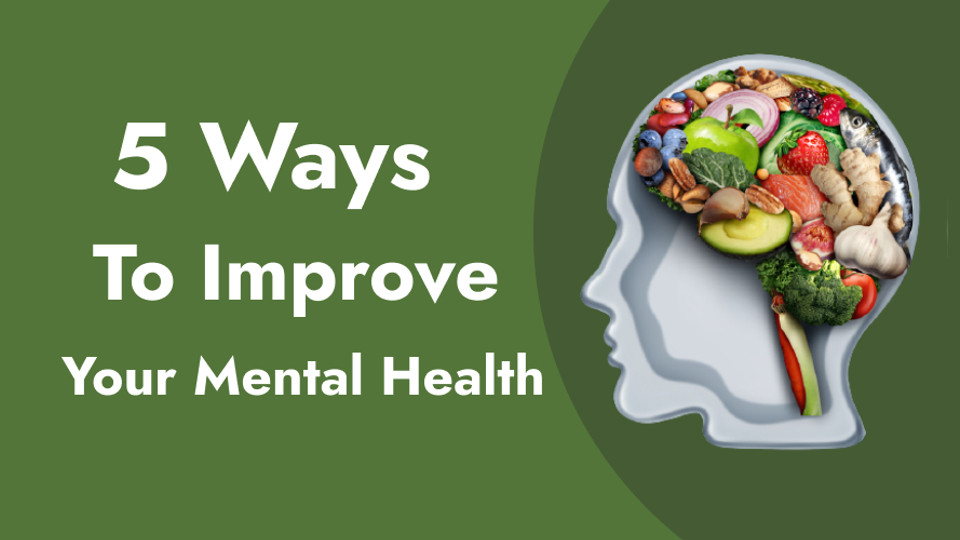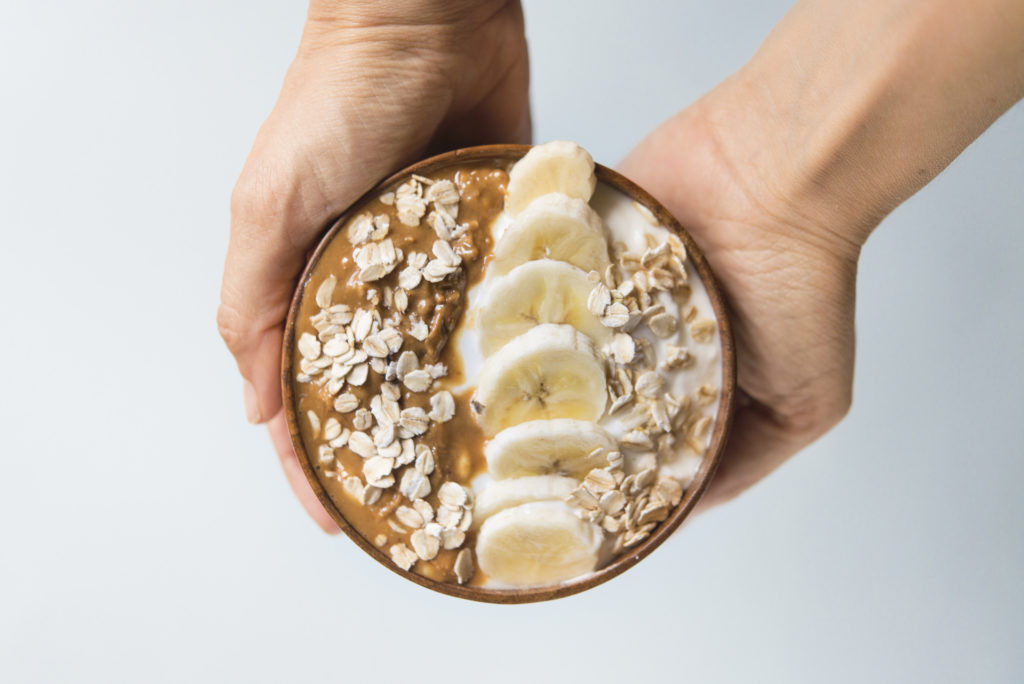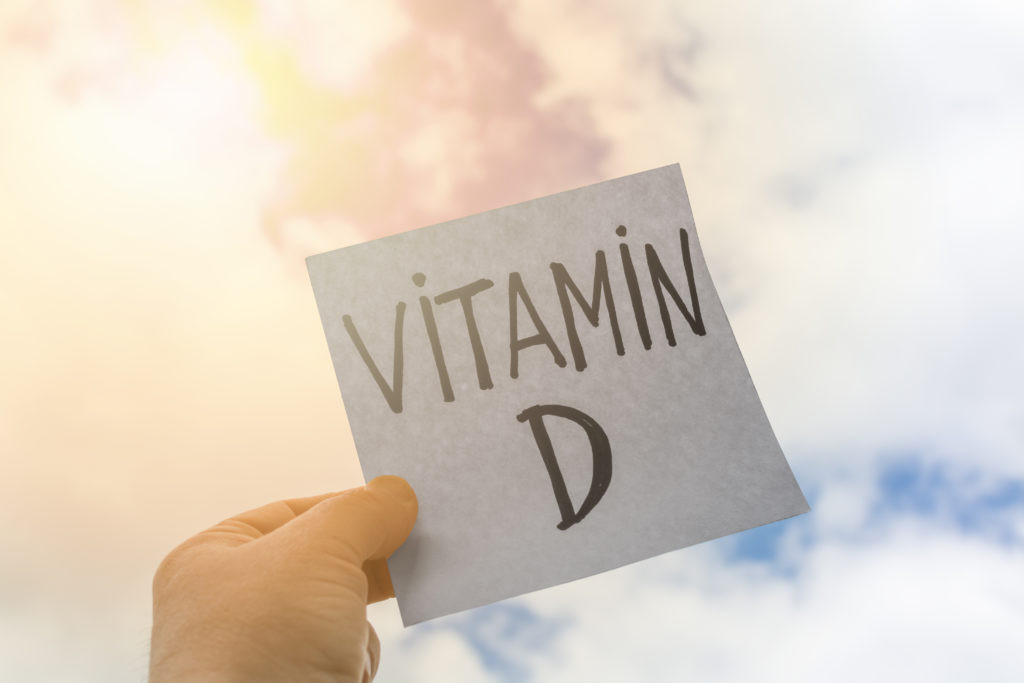
1. Look after your gut – It’s where 95% of serotonin is made!
Serotonin is a neurotransmitter that sends messages between nerve cells. It’ known as the “happy hormone” because it helps regulates mood, wellbeing, sleep and digestion.
HOW?
- Eat at least 3 different colours from fruit and vegetables daily. E.g. red (capsicum, apples), orange (mandarin, carrots), purple (eggplant, grapes), green (spinach, kale, bok choy), white/brown (mushroom, radish).
- Eat tryptophan-rich foods. Tryptophan is a pre-cursor of serotonin – this means that tryptophan is needed to produce serotonin in the body. It works in conjunction with magnesium, niacin and vitamin B6.
A rich source of these nutrients are wholegrains including oats, rye, wheat, sourdough, barley, bulgur and popcorn. Wholegrains also have the added benefit of keeping your blood glucose levels stable, keeping you energised and focussed throughout the day. [1]

2. Don’t skimp on the carbs – they are your brain’s main fuel source.
They need it to think clearly, regular emotions and process information.
Low carb diets can make you feel lethargic and foggy – making a low day and more difficult to get through. Your brain uses about 120g of glucose per day (464 calories).
The biggest thing that helps me get through low days is having a REGULAR routine that includes having slow digesting carbohydrates at main meals. Don’t make the mistake of relying on simple sugars that spike and drop your energy levels throughout the day
HOW?
- Start your day with some nourishing carbohydrates paired with protein e.g. You can go for a warm bowl of oats & peanut butter to keep the winter blues away. If you have a sweet tooth in the mornings, you might like to try yoghurt and berries, with a drizzle of honey.

3. Get more sunshine Vitamin
Getting sunlight daily is important to sync our circadian rhythm, get vitamins and relieve stress. Adding in a daily walk to your routine is a great way to have some structure, change your scenery and move your body.
Low Vitamin D levels is associated with major depression. Vitamin D deficiency is easily reversed by increasing sunlight exposure, eating vitamin D rich foods or supplementation. [2]
Even if you don’t regularly get sunlight, you can still get adequate Vitamin D through healthy, everyday foods including:
- canned tuna or salmon
- nuts and seeds
- peanut butter
- eggs (you can also get Vitamin – D enriched eggs)
- dairy products (cow’s milk and plant-based milks have vitamin D enriched options as well)

4. Focus on healthy eating, instead of weight loss
The SMILES was a 12 week trial with 67 adults with moderate to severe depression. Half the participants received dietary support from a dietitian (without a weiht loss focus) and the other half received social support. Individuals who saw a dietitian increased their intake of wholegrains, fresh fruit and vegetables in addition to reducing depressive symptoms significantly. [3]
In fact, the 32.3% of the group who saw a dietitian achieved remission whereas only 8% received remission in the social support group.
Part of seeing a dietitian involved setting personalised goals and learning more about nutrition.
The diet composition recommended was 18% protein, 40% fat and 37% carbohydrates. While this protein is relatively low, it is still within the healthy range. Individuals were recommended to follow recommended serving sizes for 12 food groups:
- vegetables (6 per day)
- fruit (3 per day)
- whole grains (5–8 servings per day)
- legumes (3–4 per week)
- low-fat and unsweetened dairy foods (2–3 per day)
- raw and unsalted nuts (1 per day)
- fish (at least 2 per week)
- kean red meats (3–4 per week)
- chicken (2–3 per week)
- eggs (up to 6 per week)
- olive oil (3 tablespoons per day)
- limit ‘extras’ foods, such as sweets, refined cereals, fried food, fast-food, processed meats and sugary drinks (no more than 3 per week).
The average cost of diet in the SMILES trial cost was: $112 dollars (Australian) per week for each person.
5. Take the stress out of food & get support
There is no shame in seeing a health professional for extra support and guidance. Regular check-ins with your GP, psychologist and dietitian are an important part of self-care.
I’m a firm believer that; If your diet is causing you anxiety, it’s not a healthy diet. I help you take the stress and guesswork out of healthy eating, so that you can reach your health and fitness goals without the stress and anxiety.
You can book sessions in advance with me here.



